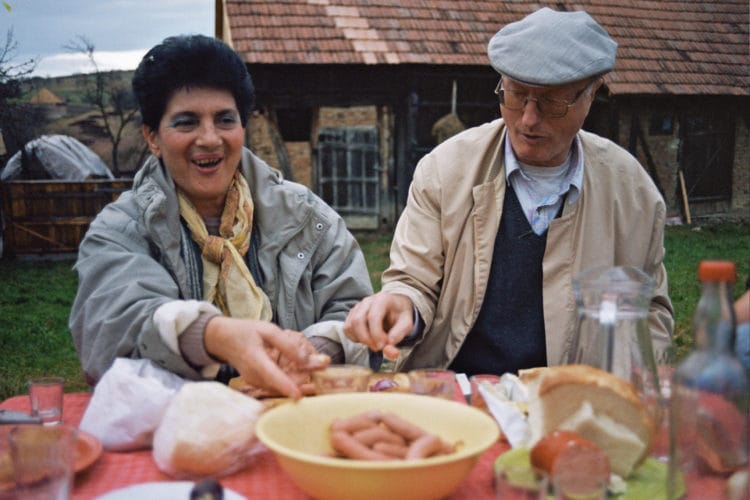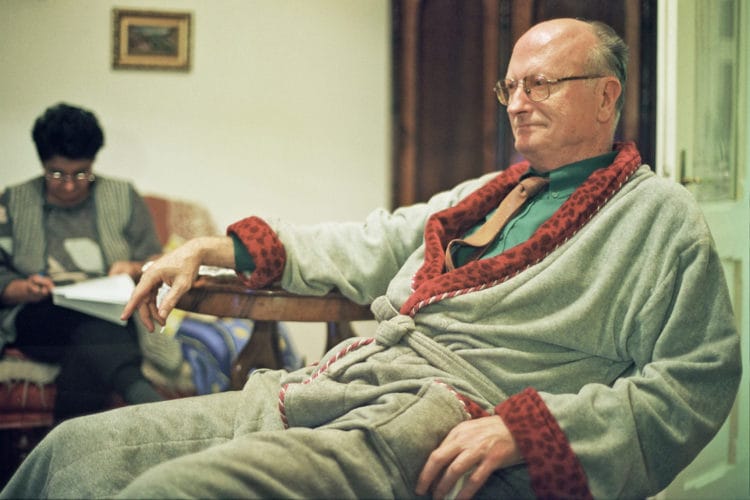Balkan Champion
In autumn 1989, my father told us he'd taken on the defence of the minister László Tökés.
I don't remember much of what happened now, only that my mother and father were both in agreement, which was rare in their 20 years of marriage. I was 17 at the time, my sister was 9, and all of us knew that he'd put his life in danger.
Protestant minister László Tökés gave an interview to a foreign television station, forcing a hole through the "wall of silence". The interview was broadcast abroad and we heard it on "Radio Free Europe". Suddenly there was a face and a name to the uprising against Ceausescu. And my father was his lawyer.
So began the revolution in Romania. Two months later crowds of protesters stormed the Central Committee Building, home of the state television, and Ceausescu fled. The pursuit,his arrest, and his execution were all broadcast live. Even after his death the shooting continued for several days. But no one knew exactly who was fighting.
My father was the 2nd Chairman in our district. He gave a blazing speech against the former secret service, the Securitate, saying he'd fight personally to put them all behind bars. It was political suicide. Ethnic conflict between the Romanians and the Hungarian minority - to which we belonged was instigated in our district. In March my father fled Romania. It was six years before he returned. The other Hungarian politicians, his old friends, managed
to salvage something from the conflict. Some play an important role in Parliament today.
What happened to my father was a crucial test for my family. Time stood still during the communist dictatorship. Everything was simple: there were friends and enemies, black and white. Afterwards everything became complicated. Old friends suddenly became enemies and you couldn't trust anybody. Were all Romanians bad and all Hungarians good? Even Hungary both appealed to us and threatened us. Which of our friends had worked for the Securitate?
Someone smeared the words "You'll all die!" across the front of our house. We were afraid. Everyone knew whose daughter I was because of my name. It was too much for me and I left for Berlin.
2006. In the meantime my father has run for Parliament 5 times, but he can't get a foothold in the new system. He fights with everyone. He's thrown out of everything. Is he too honest? Too pig-headed? Is my father a hero or a fool? And what does it mean to me?
The film is an attempt to understand the path of this Transylvanian Don Quijote, who happens to be my father. Through the personal stories of him and my family, the deep contradictions of a country become apparent. This country is Romania - as of a few weeks ago, a new member of the European Union.

Credits
Cast:
Mária Ajtay-Kincses
Imola Kincses
Elemér Kincses
György Frunda
Smaranda Enache
Atilla Kelemen
Béla Markó
Ioan Jude
Ioan Scrieciu
László Borbély
Dr. Ioan Sabau-Pop
Script:
Réka Kincses
Camera:
András Petrik
Jakob Wehrmann
Editing:
Réka Lemhényi
Beatrice Babin
Jakob Wehrmann
Sound:
Jakob Wehrmann
Music:
The Lovegloves
Film info
Direction:
Réka Kincses
Genre:
documentary
Country of production:
Germany
Production Company:
Deutsche Film- und Fernsehakademie Berlin
ZDF
3sat
Production:
2006
Shooting format:
DV
Screening format:
16:9
Frame rate:
25 fps
Aspect ratio:
16:9
Sound format:
Dolby Stereo
Language:
Hungarian
Version:
OmU
Runtime:
86


